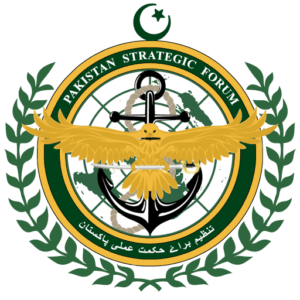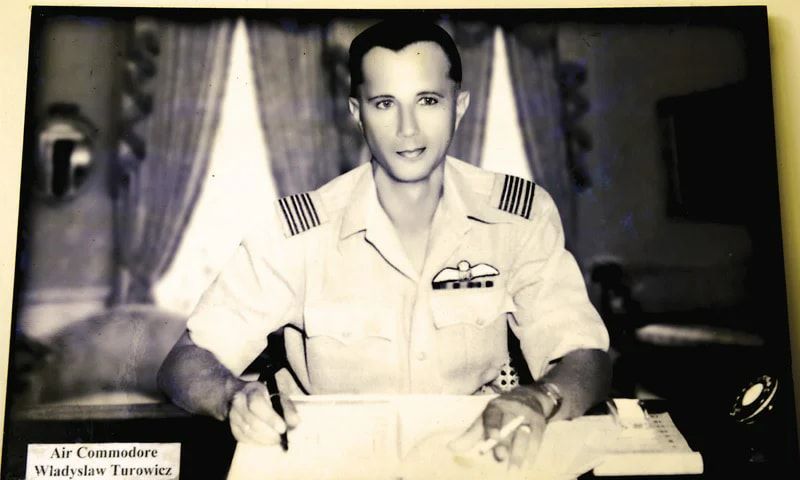Note: This article features Air Commodore Władysław Józef Marian Turowicz of Pakistan Air Force.
Air Commodore Władysław Józef Marian Turowicz (23 April 1908 – 8 January 1980), usually referred to as W. J. M. Turowicz, was a Polish-Pakistani aviator, military scientist, and aeronautical engineer.
Turowicz was the administrator of Pakistan’s Space and Upper Atmosphere Research Commission (SUPARCO) from 1967 to 1970. He was one of forty five Polish officers and airmen who joined RPAF on contract in the early fifties. After completion of his initial contract, Turowicz opted to stay on in Pakistan and continued to serve in PAF and later, SUPARCO.
Turowicz made significant contributions to Pakistan’s missile/rocket program as a chief aeronautical engineer. In Pakistan, he remains highly respected as a scientist and noted aeronautical engineer.
Career with Pakistan Air Force
As the political situation in Poland got worse, many Polish Air Force officers began to move to United States, Australia, Norway, and Canada. Turowicz and 45 of his colleagues opted to move to Pakistan in 1948 on a three-year contract.
Turowicz set up technical institutes in Karachi. He taught and revitalized Pakistan Air Force Academy, where he worked as a chief scientist. He initially led the technical training in the airbase and a part of the Polish specialists in the technical section in Karachi.
In 1952, Turowicz was promoted to the rank of wing commander. During 1959, Turowicz was promoted in the rank of group captain. In 1960, he became an air commodore and an assistant chief of air staff, in charge of PAF’s Maintenance Branch.
Pakistan’s Space Program
In 1966, the Government of Pakistan transferred him to SUPARCO, Pakistan’s national space agency, where he worked there as a chief scientist and an aeronautical engineer. Air Commodore Władysław Józef Marian Turowicz, along with noted Pakistani theoretical physicist, Dr. Abdus Salam, who later won the Nobel Prize in Physics in 1979, met with President Khan where he successfully convinced him of the importance of a space program for a developing country like Pakistan after Soviet Union’s launch of Sputnik.
He along with Dr. Salam travelled through to the United States to reach a space-co-operation agreement. He successfully convinced the United States Government to invest and train Pakistan’s scientists in the field of rocket technology
One of the earliest and notable achievements of SUPARCO activities was its unmanned space flight programme that was recorded on 7 June 1962. SUPARCO made research in the development of first solid-fuel expandable rockets, an assistance provided by the United States. On 7 June 1962, SUPARCO landed a record achievement when it launched first unmanned solid fuel sounding rocket and took its first initial space flight from the Sonmiani Terminal Launch.
The rocket was developed in a joint venture with Air force in a team led by PAF’s Air Commodore (Brigadier-General) WJM Turowicz. Known as the Rehbar-I (lit. Teller of the way), Pakistan had secured its distinction as the third country in Asia and the tenth in the world to conduct successful spaceflight. The unmanned spaceflight mission continued under Turowicz, and according to SUPARCO, since 1962 til the partial termination of mission in 1972, ~200 sounding rockets took high success space flights from Sonmiani Terminal Launch. The National Aeronautics and Space Administration (NASA) publicly hailed the space flight program as the beginning of “a program of continuous cooperation in space research of mutual interest.
Turowicz was appointed head of SUPARCO in 1967 by the Government of Pakistan. As the administrator, he revitalized and initiated the space program as quickly as possible. As a noted aeronautical engineer, Air. Cdre. Władysław Turowicz upgraded Sonmiani Satellite Launch Centre in which he was responsible for installing Flight-Test Control Command, Launch Pad Control System and System Engineering Division.
Turowicz started a project for the fabrication and launch of a Pakistani satellite. As a result, Pakistan mastered the field of rocket technology by the end of the 1970s. He also set up the educational engineering institute at the SUPARCO.
Death and Legacy
Air. Cdre. Turowicz was involved in a car accident on 8 January 1980 along with his driver. He was quickly taken to the military hospital where he was pronounced dead. He was buried in the Christian Cemetery in Karachi with full military honours. Both Polish, including the Consul-General of Poland in Karachi Mr. Kazimierz Maurer, and Pakistani military and civilian personnel attended his funeral in Karachi. The Government of Pakistan issued a condolence letter to his family, stating that Turowicz was not only an outstanding Air Force officer, but also a scientist, and had served in the country’s space program.
In 2005, PAF Museum, Karachi, placed a memorial plaque in the honour of Air. Cdre. Władysław Turowicz where both Polish and Pakistani civilian and military personnel attended. On this occasion the Consul General of the Republic of Poland in Karachi Ireneusz Makles profoundly thanked the PAF and especially Air Chief Marshal Rao Qamar Suleman and other officers for their efforts to make this memorial a reality.
Władysław Turowicz Monument (PAF Museum, Karachi).
Władysław Turowicz Space Complex (SUPARCO), Lahore Center.
Awards
- Sitara-e-Pakistan (1965)
- Tamgha-i-Pakistan (1967)
- Sitara-i-Khidmat (1967)
- Sitara-e-Quaid-e-Azam (1971)
- Sitara-e-Imtiaz, (Mil) (1972)
- Abdus Salam Award in Aeronautical Engineering (1978)
- ICTP Award in Space Physics (1979)







